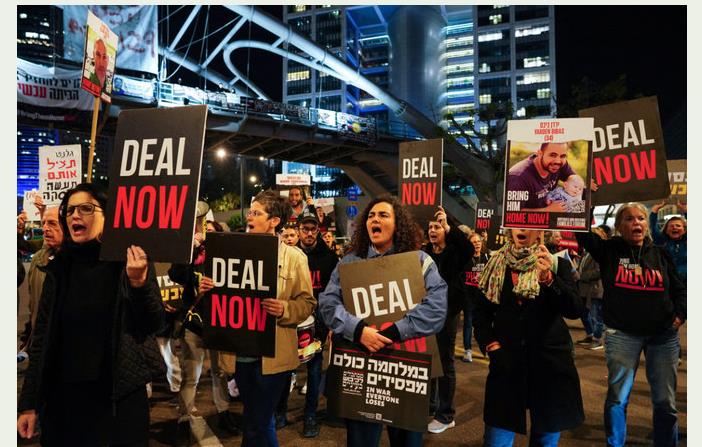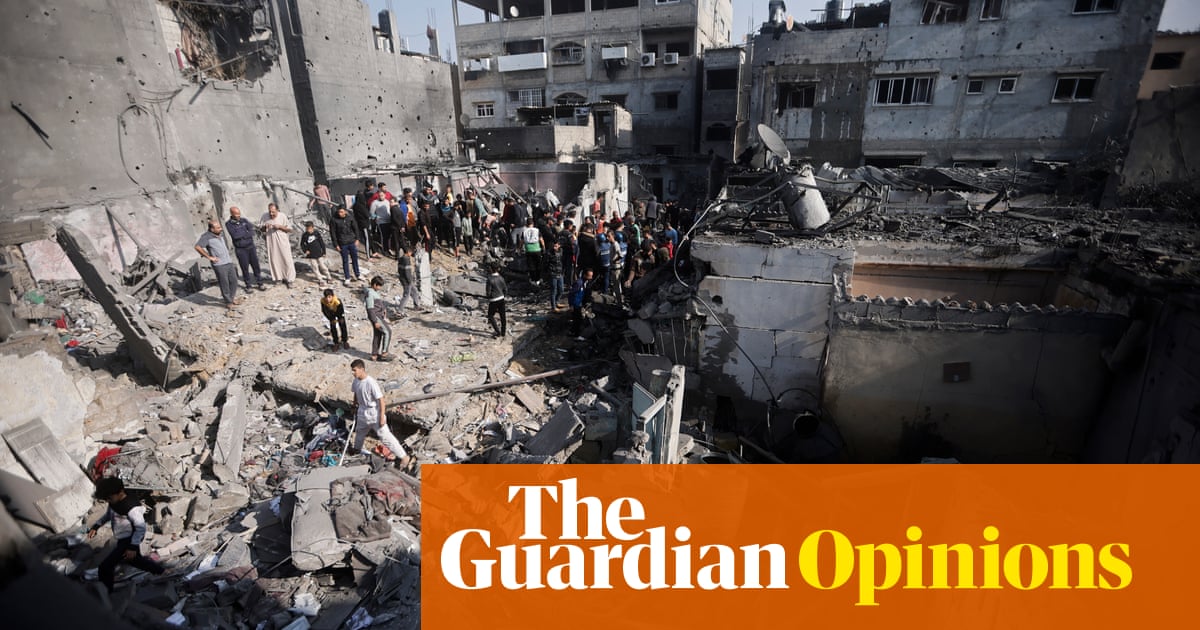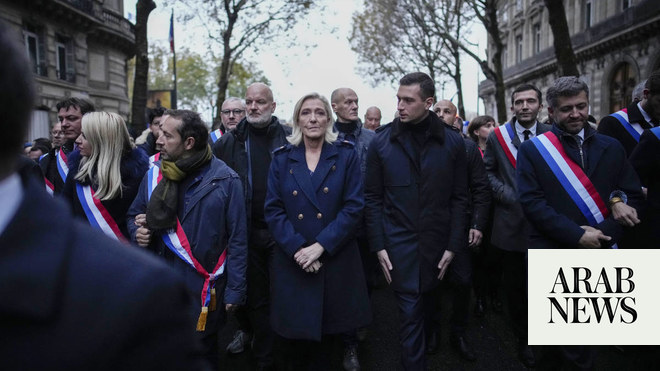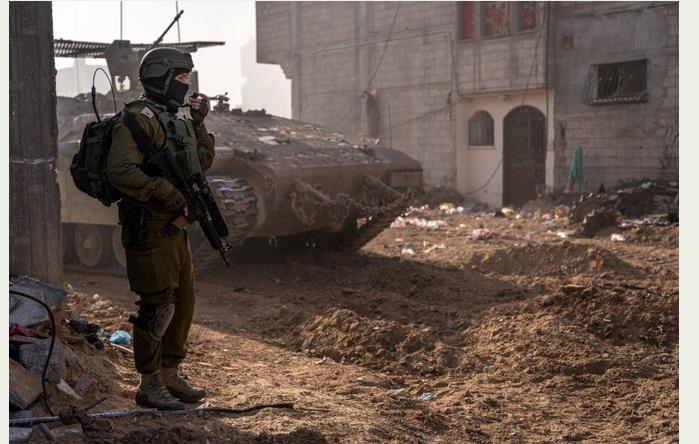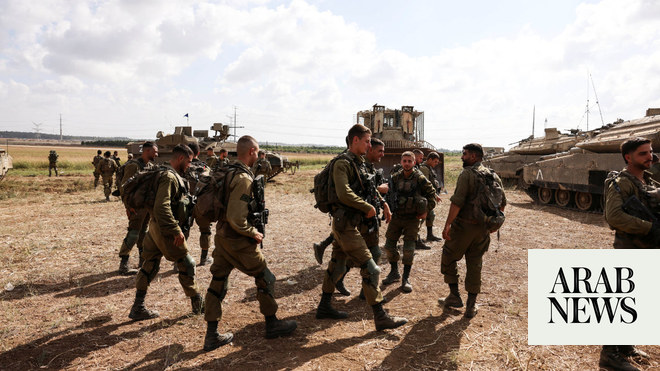
The past three weeks have been a sheer nightmare for Israelis and Palestinians, with unprecedented bloodshed and destruction in a very short period of time and no end in sight as yet.
At the time of writing, Israel was yet to launch its widely anticipated ground offensive but it is expected at any minute. Amid this sea of bloodshed there might be at least a flicker of hope that the nature of such an incursion, if and when it comes, will be more surgical in nature than a frightening demonstration of military power that sweeps away and destroys everything in its path.
As the horror of the Hamas attack of Oct. 7 came to light, it was self-evident that the Israeli response would be harsh and unforgiving. Furthermore, the response from the international community — mainly the West, and first and foremost the US — in repeatedly declaring that “Israel has the right to defend itself” was bound to be interpreted by Israeli authorities as a blank check to react in whatever way they saw fit.
This still leaves the question, however, to what purpose? After all, as was contended nearly two centuries ago by the Prussian general and military theorist Carl von Clausewitz, “War is merely the continuation of policy by other means,” In other words, it is not about revenge or punishment but about achieving political goals.
Understandably, the shock experienced in the aftermath of the surprise attack by Hamas, especially about its extraordinary brutality, led to strong emotional responses from Israel’s politicians, military chiefs and, to be fair, from most quarters of Israeli society. Unfortunately, many Israelis since then have conflated the war that Israel formally declared against Hamas and Islamic Jihad with the attacks on the people of Gaza and Palestinians everywhere.
Prime Minister Benjamin Netanyahu has stated: “We have only one goal in sight — to destroy Hamas. We will not stop until this target is met.” It remains to be seen whether this is achievable, or mere rhetoric to rally the country around the flag.
That goal likely means a long war, however, and enormous numbers of casualties on both sides. It is becoming increasingly apparent that Israel’s delay in embarking on a ground offensive was no coincidence, but due to operational considerations and international pressure. This in turn has created the space for Israel to reconsider the timing and scale of such an operation.
While the visits to Israel by Western prime ministers and presidents after the attacks were a show of solidarity with the country in its time of pain and grief, and equally of addressing a political and military crisis, the delay to the anticipated ground assault has also enabled US President Joe Biden and other world leaders to deliver the message that Israel’s response should be proportionate and spare civilian lives. There is real concern that should this not be the case, the war might spill over to other arenas, destabilize the region and eventually harm Western interests throughout the Middle East.
But one might argue that achieving this will be no easy task, in light of the intensity of the situation and the ever-rising number of casualties.
The instant support shown by the US in particular, and personally by Biden, not only in terms of solidarity with Israel and its people but also regarding arms supplies and naval vessels being moved into position off Israel’s shores, means that Washington is best placed to have the last word on when the ground offensive starts and how it is conducted.
Looking at the bigger picture, which is usually forgotten, preventing extremism and violence of the kind committed by Hamas will not be achieved by treating the entire population of Gaza as mere collateral damage.
Yossi Mekelberg
Yet, wars inevitably have their own dynamics, and one knows how they start but rarely how they will end. In a way, the focus on the timing and nature of an Israeli ground attack has diverted and sedated the response to Israel’s non-stop aerial bombardment of Gaza over the past three weeks, which has already claimed, according to the Health Ministry in Gaza, more than 6,000 lives, many of them civilians with nothing to do with Hamas or militancy, It has also inflicted huge swaths of destruction on Gaza’s infrastructure, which was already on the brink of collapse before Oct. 7.
Moreover, the lives of about 220 hostages, many of them foreign nationals, are dependent on how this conflict, dubbed the “Iron Swords War” by Israel, unfolds.
It is mystifying that while Washington has been hesitant to give Israeli authorities the green light to send ground forces into the Gaza Strip — in part because it does not think Israel is adequately prepared for such an intense and exacting operation, but also because of the potential for further loss of life — it has not called on those authorities to be more surgical in their aerial bombardment campaign, to prevent widespread civilian casualties, or to allow more aid convoys to enter Gaza.
A wholesale ground incursion into the Gaza Strip might be inevitable, not only for military purposes (a number of very targeted actions have already taken place) but also because Israel’s prime minister, his Cabinet and his military commanders have committed themselves to the sole objective of destroying all of Hamas’ and Islamic Jihad’s military capabilities, leaving very little room for them to mitigate this decision.
In light of the events of Oct. 7, which shocked Israeli society to the core, spread fearful doubt in the ability of its security forces to defend its citizens, and broke whatever little trust was left in the government and, especially, Netanyahu, Israel’s excessive use of force in its response was expected, even if not justified.
Yet, three weeks into this response, the worst war between Israelis and Palestinians since 1948, there is a need to ensure that it does not become a matter of saving Netanyahu from the anger of his own people and his inevitable political downfall, not only for failing so spectacularly to defend the nation but also for showing such flaccid leadership abilities since the attack.
Looking at the bigger picture, which is usually forgotten, preventing extremism and violence of the kind committed by Hamas will not be achieved by treating the entire population of Gaza as mere collateral damage. This would be immoral and, equally, counterproductive.
Netanyahu might be correct that the war with Hamas will be a long one, but it must avoid hurting the innocent in the process because that would also compromise any future attempt to embark, in due course, on talks that could result in peaceful coexistence and reconciliation in the aftermath of the war.
Israel’s response must be one that builds hope for a better future that guarantees its own security, not one that will deliver Palestinians into the hands of the very people who would like to see the destruction of Israel.
This is where the international community can, and must, play an important role in restraining Israel’s use of force against civilians, ensuring the delivery of humanitarian aid, and negotiating a ceasefire and a political plan for the day after.
Yossi Mekelberg is professor of international relations and an associate fellow of the MENA Program at Chatham House. He is a regular contributor to the international written and electronic media. X: @YMekelberg
Disclaimer: Views expressed by writers in this section are their own and do not necessarily reflect Arab News" point of view




